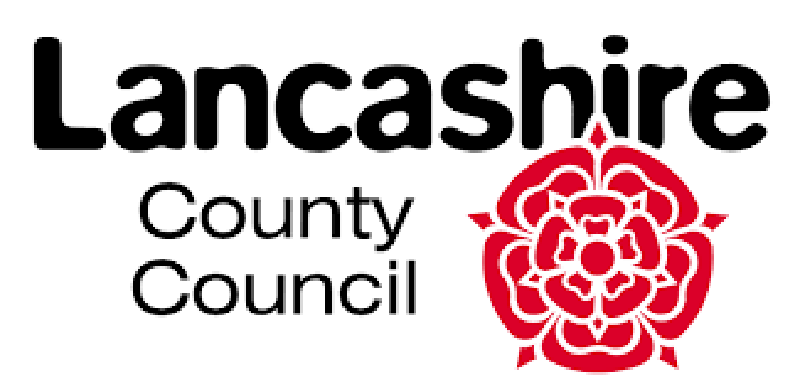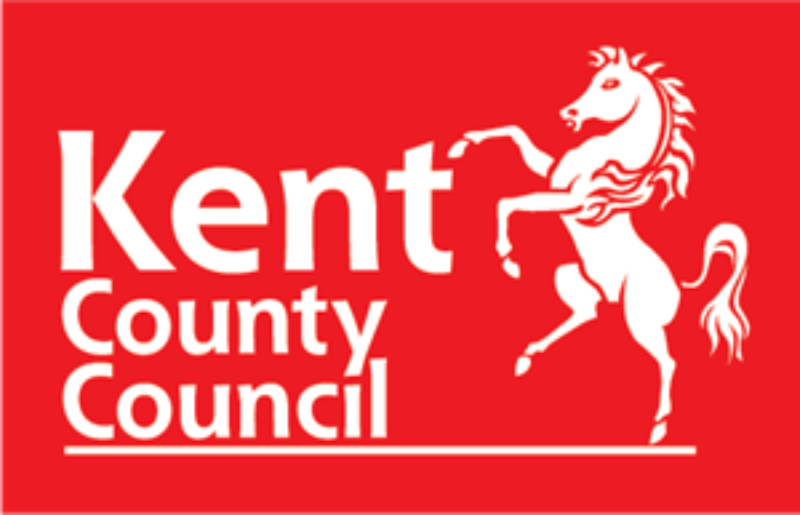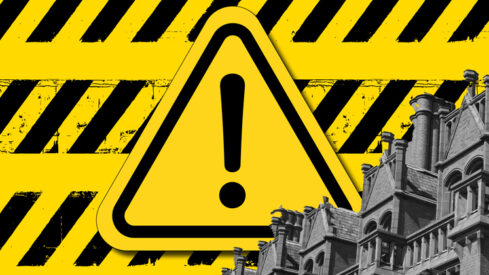Private equity-owned independent special schools which charge councils fees of up to £131,000 a year are among hundreds that have failed Ofsted standards checks, Schools Week can reveal.
More than 250 non-associated private schools have failed to meet independent school standards in inspections carried out since September 2021, Schools Week analysis shows.
We found:
- Private special schools made up more than two in five of those found to be failing. But, in some cases, councils continue to send vulnerable children to the institutions – including one where “staff respond to violence from pupils with further violence”.
- Faith schools that have failed consecutive inspections for as many as 10 years – but still remain open.
- Five private special schools owned by the Cambian Group – which posted a net profit of £6.5 million in 2023 – failed independent schools standards checks in the past four years. Four of those schools were later found to meet standards in subsequent inspections.
84 schools that did not meeting independent school standards inspections on multiple occasions – almost a third. Overall, 46 have closed.
Labour’s schools bill proposes to tighten regulation over schools failing such inspections. So which private schools have not met the standards, and why? Schools Week investigates…
“Staff are responding to violence from pupils with further violence”
Schools fail, but investors make millions
Nine private special schools that have failed inspections since 2021 are owned by companies backed by private equity or sovereign wealth funds.
In 2023, Schools Week exposed how these companies were making millions from the “bankrupt” SEND system.
Pontville School, an independent special school in Lancashire, is owned by the Witherslack Group, which runs 28 private special schools.
The company is owned by Mubadala Capital, a subsidiary of Abu Dhabi’s second-largest sovereign wealth fund.
On its website, Pontville boasts of “continued outstanding Ofsted results”. But, in December last year, an inspection found the school was failing to meet standards around the welfare and safety of pupils.
“A significant minority of pupils say that they do not feel safe at school,” inspectors noted. “Bullying, prejudiced behaviour, threats of violence and physical aggression are commonplace.”
Inspectors found there was evidence of some pupils being subjected to frequent restrictive physical interventions. One pupil had been placed in at least 80 holds over the past four months.
Incident reports, parental complaints and first-aid logs revealed that pupils had suffered “serious physical harm” during fights with other pupils.
“Some of these have led to pupils requiring multiple and ongoing surgery to repair the damage,” Ofsted wrote.
Staff members described a culture where “staff are responding to violence from pupils with further violence”.
Councils keep paying out
Last year, the school charged annual fees of up to £116,000 for each day pupil.

Lancashire County Council paid Pontville School fees amounting to more than £386,000 in November, the month before the latest inspection. The council said it was “continuing to support the children currently in attendance” at the school.
Witherslack recorded a profit margin of 26.5 per cent in 2023, according to a report commissioned by the Local Government Association. That year, its income was £148 million.
A spokesperson for Witherslack said the safety and care of pupils was its “utmost priority”. The company “work[s] constantly to ensure our schools meet the highest standards of education, safeguarding and care”.
The company noted that each of its schools is rated as ‘good’ or ‘outstanding’ by Ofsted. Pontville’s latest inspection was not graded, so it is still rated ‘good’.
“Witherslack Group acknowledges the findings of Ofsted’s recent inspection at Pontville School and has taken immediate action to address the inspection’s findings,” the spokesperson added.
“We will continue to provide additional support to the school and ensure that our action plan is quickly and fully implemented.”
Five of firm’s schools didn’t meet standards
The Cambian Group, owned by CareTech, runs more than 20 special schools. In 2022, The Times reported the firm sent more than £2 million to its founders’ offshore company in the Caribbean. Schools Week previously reported the firm’s net profit at £6.5 million.
Five Cambian special schools have failed to reach independent school standards in at least one inspection since 2022, our analysis found.
Ofsted concerns included pupils’ frequent use of foul language and behaviour that could become “violent and aggressive” at one school.
At another, a “significant proportion” of students were “failing to integrate successfully”, leading to placement breakdowns. Safeguarding logs were “not always updated regularly enough” at another.
However, four of the five schools were found to meet all independent school standards at their most recent inspections.
Cambian said none of its schools were currently rated by Ofsted as ‘inadequate’, and the most recent published inspection results shows that 77 per cent are rated as either ‘good’ or ‘outstanding’.
At the school which did not meet all standards at its most recent inspection, the company said “remedial action is underway and will be completed shortly.”
Two other schools have had action plans to address shortfalls accepted by the DfE and “again the remedial processes are well underway,” the company added.
“Taxpayers will rightly want to know why the SEND budget is lining the pockets of private equity firms”
Failures found at private-equity owned schools
Private equity-owned schools which have failed to reach independent school standards in at least one inspection since 2021 include North Hill House school, owned by Aspris.
The company was set up by Waterland, a Dutch private equity firm, and runs 35 specialist schools and colleges in the UK as well as children’s homes.
North Hill House failed to meet standards in 2020, 2022 and February 2024. But the school met all standards in its most recent inspection.
In 2024, inspectors concluded that the quality of education pupils received was “not good enough”, and leadership in and management of the school was “inadequate”.
In a statement, Aspris said it was “delighted” with it most recent inspection, carried out last December, which “shows the improvement journey of the school and demonstrates Aspris’ commitment to ensuring high quality schools within our sector”.
Michael Pearce, headteacher at North Hill House, said the school “remain[s] focused on continuing this positive momentum to provide the best possible learning environment for every child”.
But a spokesperson for the Private Education Policy Forum (PEPF) said taxpayers would “rightly want to know why the SEND budget is lining the pockets of private equity firms” while some of their schools were found not to meet standards.
Councils fund “risky” schools
Roughly 20 per cent of non-associated private schools failed to meet the independent school standards in 2023-24, Schools Week analysis shows.
Nearly half of the 2,500 independent schools in England are non-associated private schools. These do not have an umbrella organisation and are inspected by Ofsted rather than the Independent Schools Inspectorate.
A state capacity crisis has led to increasing numbers of pupils being placed in private special schools.
In Kent, Cornfields School, a special school with fees of £37,500 a year, went from “outstanding” in 2022 to failing on its quality of education, safety of pupils and suitability of staff – among other issues – last year. A second inspection in November found the school had slipped even further.

At that time, inspectors said the school’s safeguarding and child protection policy was “not fit for purpose” and the school had not always ensured that adequate recruitment checks were done on staff who had lived and worked overseas.
They also said that, while “physical interventions” were used rarely, the staff’s lack of expertise in when and how to use them was “placing pupils and staff at additional risk”.
And, while local councils were referring SEND children to the school, inspectors found Cornfields was not allocating funding “appropriately” to meet the needs of its pupils’ EHC plans. As a result, some were not getting access to specialist therapies or resources.
Cornfields School did not respond to a request for comment.
Look-after children removed
Kent County Council removed looked-after children in its care from the school in September, six months after concerns were first raised about Cornfields. A spokesperson told Kent Online that this was because it feared children were “at risk”.
Nonetheless, in November, nine months after the school first failed a standards inspection, the council paid Cornfields £99,000 in fees.
A council spokesperson said this payment was for fees owed for September to October. They no longer place children at Cornfields.
The PEPF spokesperson added that “multiple governments have failed time and again to plan properly for special needs education.
“Private special-needs schools charge the taxpayer more than double the money of state special-needs schools on average, and so the situation is also draining the nation’s education budget.”
Faith schools fail for years
Ofsted data shows that just under a third of all failing non-associated private schools were faith schools. However, faith schools made up nearly half of those that failed to reach standards over multiple inspections.
Government policy states that schools that do not meet the standards “must improve rapidly or face enforcement action, which may result in closure”.
But Schools Week found some faith schools have failed to reach standards in consecutive inspections over eight, nine or 10 years.
Mechinoh School, an Orthodox Jewish school in Salford, Lancashire, has failed to meet independent school standards over eight consecutive inspections since March 2017.
Last year, inspectors found pupils were not acquiring sufficient knowledge of English, mathematics and other subjects, and were not studying for GCSEs. Beyond Year 10, students had no option but to continue with religious studies.
The building was in “a considerable state of disrepair”; a basement used as a social area for pupils was damp and its walls were “covered with mould”.
Ofsted concluded that the school had “failed to resolve the weaknesses identified at the previous inspection” and that it in fact met fewer standards than it did in 2023.
The school did not respond to a request for comment.
Last year, the school received a warning letter requiring it to submit an action plan detailing how it would improve.
Failure to submit or implement an “adequate” plan can result in the government taking stronger “enforcement action”.
School fails ten inspections – but still open
The government said its new schools bill measures will allow officials to “better secure the timely closure of institutions that, over time, are unable to fully meet the standards (often they will show some improvement then relapse)”.
It proposes a new power allowing ministers to immediately suspend a private school’s registration where children are at risk of harm. It also wants to expand what constitutes a private school and introduce a “fit and proper person” test for proprietors.
In London’s Stamford Hill, the Orthodox Jewish girls’ school Beis Ruchel D’Satmar London has failed to meet independent school standards over 10 consecutive inspections since 2016.
The school has received two government warning notices over the past three years. It was banned from admitting new pupils in 2019, but the restriction was lifted the following July after it made improvements.
Last year, inspectors found that school leaders did not allow the girls to learn about relationships and sex education, and “continued not to actively promote and encourage respect for other people, in particular, those with different faiths and beliefs”.
In some subjects, including science and geography, leaders did not allow pupils to study certain concepts, read content or complete tasks that went against the school’s religious beliefs.
A spokesperson said they were an “exemplary school”. But for, “religious and cultural reasons, we do not teach at school a certain few of the protected characteristics.
“We are often penalised for these faith values by Ofsted, who link these issues with the independent school standards.”
“The school keeps records of pupils who have been withdrawn. This is currently all pupils.”
Empty RSE classrooms
Many private faith schools included in Schools Week’s analysis were found to be failing standards inspections primarily because they do not teach pupils about sex and relationships, or about people with protected characteristics: for example, those who are LGBTQ, transgender or in same-sex marriages.
Some faith schools are adhering to government rules around RSE and health education by developing a suitable curriculum – but allowing parents to withdraw their children from those lessons.
At TTTYY School, an Orthodox Jewish school in London, inspectors last year found that the school had developed a “suitable” RSE policy since its last inspection a year before.
“The school keeps records of pupils who have been withdrawn,” inspectors wrote. “This is currently all pupils.”
The school did not respond to a request for comment.
“These schools have been working within a culture of impunity,” said Michael Pyke, press officer at the Campaign for State Education. “They have been allowed to fail again and again. What we don’t know is why it has been allowed to happen.”
The PEPF spokesperson said the government should make clear to all schools with multiple failings that “the law is the law. All children must receive a good and safe education. If support to improve is not welcome, the schools must be shut without delay.”
James Whiting, general secretary of Socialist Educational Association, said the new schools bill provisions were “a step in the right direction”, but that more needs to be done.
He noted that failing state schools undergo forced academisation, but no such provision exists in the private sector.
The government said it only expects to use the new suspension powers against “very few schools”, roughly five per year.
A DfE spokesperson said all private schools must meet the independent school standards, and that “high and rising school standards are at the heart of our mission to break down barriers to opportunity and give every child the chance to achieve and thrive.”
‘Animal welfare comes first’

The only non-associated private school issued with a government “voluntary closure” notice in the past three years, according to documents provided to Schools Week by the DfE, was Sunflower Meadow Farm School outside Birmingham.
Located on a working farm, the school charged the DfE and local authority fees of up to £65,000 to enrol primary-aged children with special educational needs.
Shortly after the school opened, inspectors found an open slurry drain running through the grounds, pupils who were regularly physically restrained by untrained staff, and teachers who had not been properly vetted.
“The headteacher openly stated to the lead inspector that ‘animal welfare comes first’,” inspectors wrote. “During the inspection, the headteacher and proprietor were focused on a vet attending to a pig.”
Seven of private AP firm’s 12 schools fail checks
Private alternative provision schools have also been found to fall below standards.
Seven out of 12 schools run by Progress Schools, an AP provider with schools across England, have failed independent school standards in inspections since 2021.
At one in 2023, inspectors found that the school had “low expectations of what some pupils, including those with special educational needs and/or disabilities, can and should achieve”.
At another, in the same year, inspectors noted that teachers “do not have a good knowledge and understanding of the subjects that they teach”.
At a third, inspectors said simply that “leaders have failed pupils at this school”.
Four of the seven Progress schools reached independent school standards in their latest inspections.
A company spokesperson said they “choose to be a registered provider and face [independent school] standards, as we firmly believe all school settings should be regulated.
“But it can be challenging, as the needs of our students and nature of our settings don’t always fit with criteria primarily designed for the mainstream.”
Many of their pupils have been excluded or “do not attend due to mental health, trauma or challenges at home. We’re working hard to tick all the boxes in the current inspection system and lobbying for a new approach.”
The spokesperson added: “All our inspections show our safeguarding is effective, and there have been improvements across all our schools in their most recent inspections.”













Your thoughts